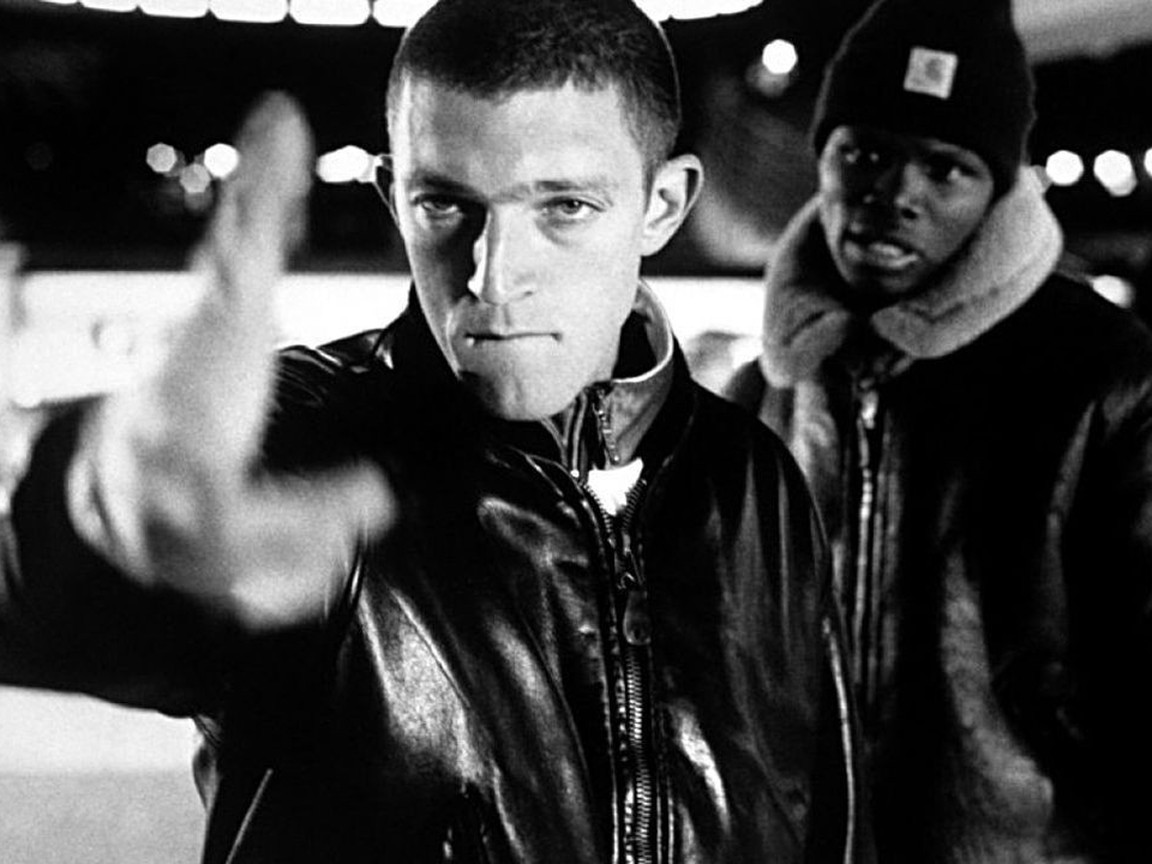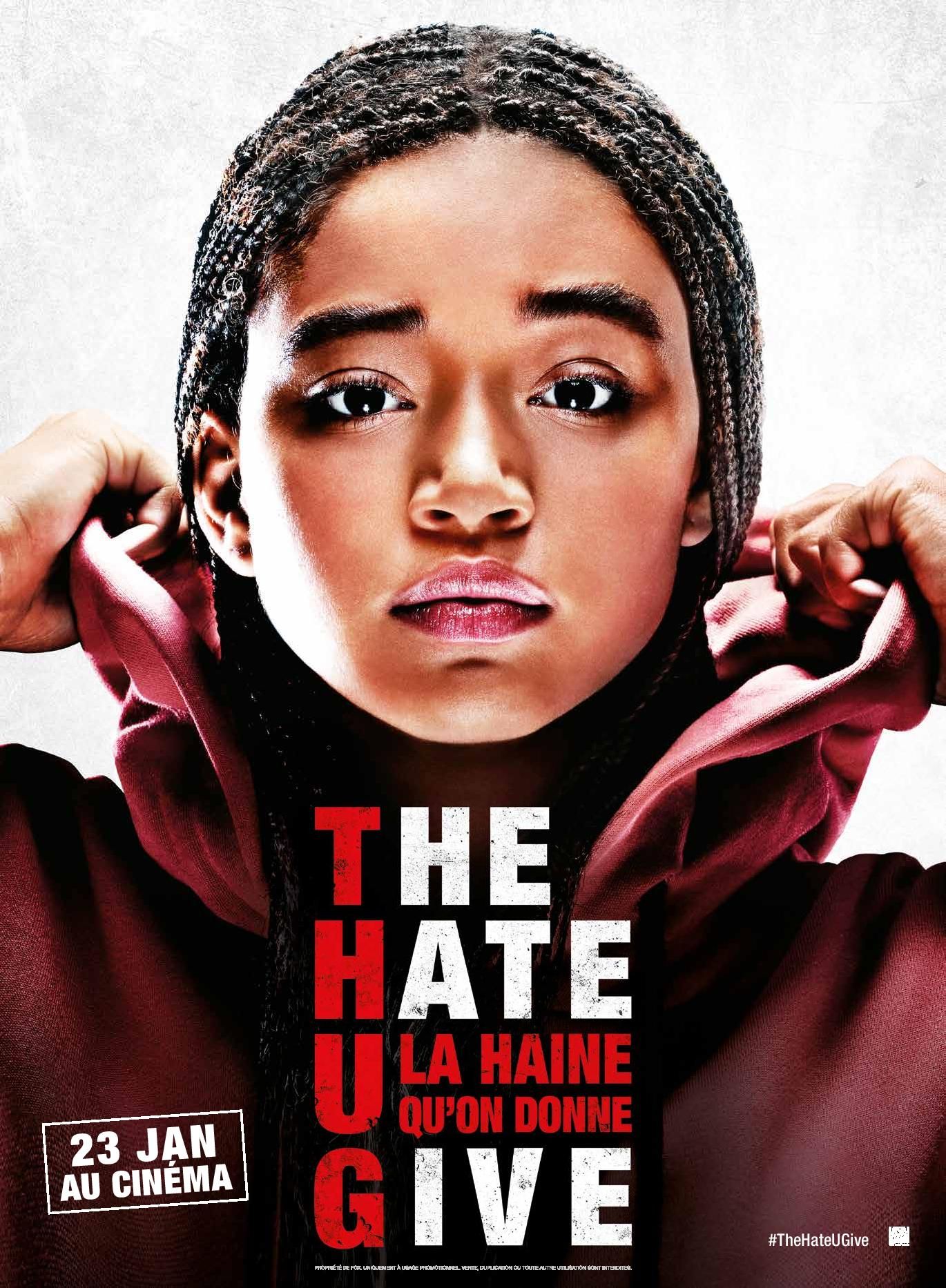


And most poignantly, they sit, completely bored, listening to a kid rambling on about a 'Candid Camera' episode that suddenly turned violent. They hang out on rooftops where a barbeque party hints that life in this area moves on, trying to secure some kind of normalcy. They rag on one another like most young men do while also talking nonsense of others living in their district.

The one day in the life tale commences as a series of unrelated, unimportant intervals of time as the three friends essentially lounge about their neighborhood with nothing to do. Slowly escalating to an electrifying moment of startling explosiveness, the filmmakers confront the many complexities which lead to acts of violence. Even at its most innocent - a holocaust survivor shares a memory about going to the bathroom - the dialogue of the characters seems to come from a deep-rooted sense of resentment, animosity and frustration.

And like those directors, Kassovitz takes his time developing his characters through various conversations and encounters which are more heated than the previous. Written and directed by Mathieu Kassovitz, the film shares similar themes with Spike Lee's ' Do the Right Thing' and John Singleton's ' Boyz n the Hood.' It provides a voice for a voiceless minority, capturing the attitudes and concerns of the youth in a way that's as mesmerizing as it is frightening. Following three young, wayward friends the day after a violent riot left their neighborhood in shambles, the black-and-white drama is a powerful commentary on racial discrimination, poverty and immigration. It's a broader look of the famous city commonly thought of as representing the height of culture and sophistication, exposing a side of the capital often ignored, even by its own citizens. With a trenchant incisiveness into social unrest and disillusionment, the gritty, documentary-style lens of cinematographer Pierre Aïm sheds a light on the little-known housing-projects in the outskirts of the City of Lights. Intensely gripping and unapologetic in its approach to contemporary France, 'La Haine' is a stark, bleak portrait of the impoverished youth living in the banlieues of Paris.


 0 kommentar(er)
0 kommentar(er)
